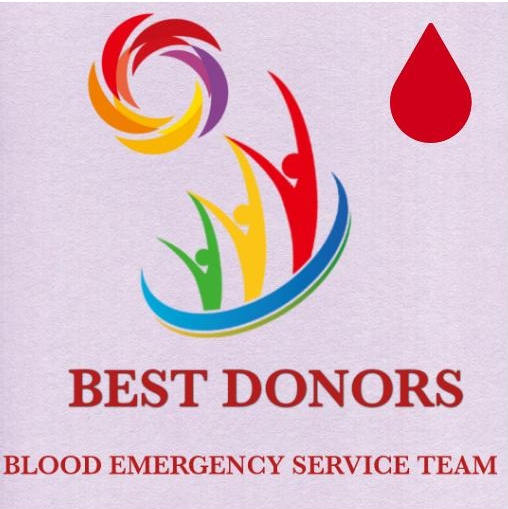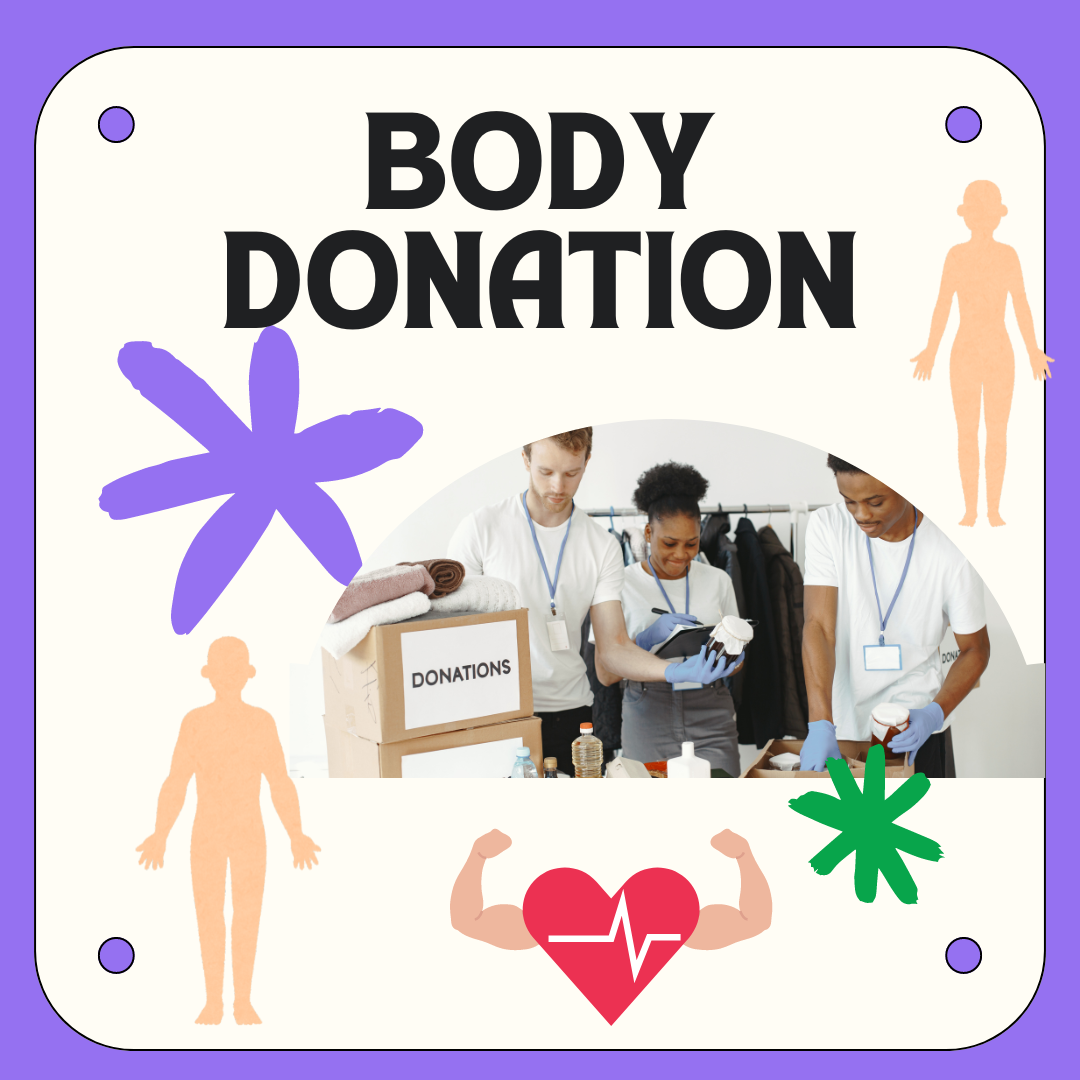Body donation, also known as anatomical donation or body bequest, is the selfless act of donating one’s entire body after death for medical research and education.
How Does Body Donation Work?
Registration: Individuals can register their wish to donate their body with a medical college, hospital, or an NGO that accepts body donations.
Consent: It’s crucial to discuss your decision with your family to ensure their understanding and support.
Donation Process: After death, the designated institution takes care of the body, using it for various medical purposes like dissection, study, and research.
Final Rites: Once the body has served its purpose, the institution typically returns the remains to the family for final rites as per their wishes.
Benefits of Body Donation
Advancement of Medical Science: Body donation plays a vital role in training future doctors and researchers.
Saving Lives: The knowledge gained from body donation contributes to developing new treatments and cures for diseases.
Personal Satisfaction: Knowing that your body is contributing to a noble cause can provide peace of mind.
Considerations
Religious and Cultural Beliefs: Some religions or cultures may have specific views on body donation. It’s essential to consider these before making a decision.
Legal Requirements: Different countries and regions have their own laws regarding body donation. It’s crucial to familiarize yourself with the legal aspects.
Family Support: Open communication with your family about your decision is essential to ensure their understanding and support.
Body Donation in India:
Body donation is a significant contribution to medical education and research in India. It’s a selfless act that helps train future doctors, researchers, and contributes to the advancement of healthcare.
Process of Body Donation in India
While the exact process might vary slightly between different medical institutions, here’s a general overview:
Registration:
You can register your wish to donate your body at a nearby medical college, hospital, or an NGO involved in body donation.
A registration form will be provided, which you need to fill out with necessary details and obtain signatures of your next of kin.
Donor Card:
Upon successful registration, you will receive a donor card. This card should be carried with you at all times.
Inform Family:
It’s crucial to discuss your decision with your family and ensure their support. They will play a vital role in carrying out the donation process after your death.
Death and Notification:
Upon your death, the family or next of kin must inform the registered medical institution as soon as possible.
Transportation:
The institution will arrange for the transportation of the body to their facility.
Legal Formalities:
Necessary legal formalities, such as obtaining a death certificate and no-objection certificate from the police, must be completed.
Donation Process:
The body is used for medical education, research, and anatomical studies.
Final Rites:
After the body has served its purpose, the institution will inform the family about the remains, which can be claimed for final rites as per religious or cultural practices.
Important Considerations
Religious and Cultural Beliefs: Respect for religious and cultural sentiments is essential. Some institutions may have specific guidelines regarding body donation based on these factors.
Age and Health Conditions: Most institutions have age restrictions (usually above 18) and may exclude individuals with certain medical conditions.
Family Support: Open communication with your family is crucial to ensure their understanding and cooperation.
Where to Donate
To find a body donation program near you, you can:
Contact your local medical college or hospital.
Search online for NGOs involved in body donation.
The Importance of Body Donation in India
Body donation in India plays a crucial role in advancing medical education and research. It provides invaluable opportunities for medical students to understand human anatomy in depth, which is essential for their future practice.
Key benefits of body donation in India:
Training future doctors: Medical students rely on cadaveric dissection to learn about the human body’s structure and function.
Research and development: Researchers use donated bodies to study various diseases, develop new surgical techniques, and improve medical treatments.
Advancement of healthcare: The knowledge gained from body donation contributes to saving lives and improving the overall health of the population.
Overcoming Challenges
While body donation is a noble act, there are challenges to overcome in India:
Social and cultural beliefs: Some cultural and religious beliefs may hinder body donation.
Lack of awareness: Many people are unaware of the importance of body donation and its benefits.
Infrastructure: There is a need for more facilities equipped to handle body donations and conduct research effectively.
Despite these challenges, there is a growing awareness and acceptance of body donation in India.
Many medical institutions and NGOs are actively promoting body donation and providing necessary support to donors and their families.
This invaluable contribution helps medical students and researchers understand the human body, leading to advancements in healthcare.

